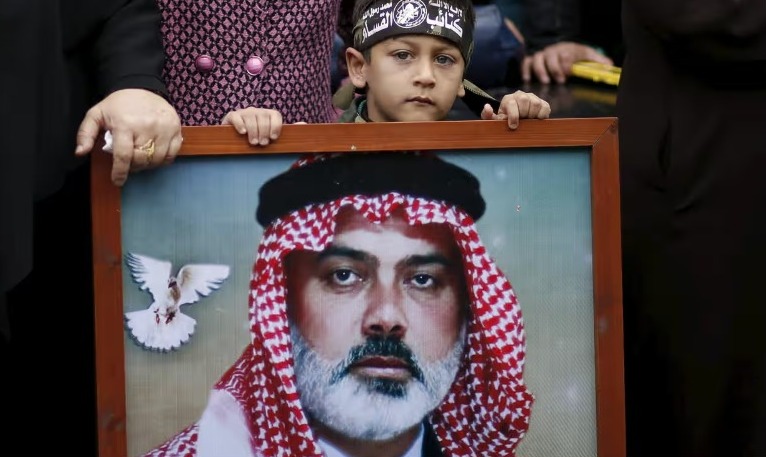
The assassination of Ismail Haniyeh, a prominent leader of Hamas, in Tehran on July 2024 marked a dramatic and tragic turn in the ongoing Israeli-Palestinian conflict. Haniyeh, who had become a central figure in Hamas’s political operations and international diplomacy, was reportedly killed in a raid that Hamas attributed to Israeli forces.
This event not only shocked the international community but also cast a long shadow over the fragile peace efforts and negotiations between Israel and Hamas. As the world grappled with the implications of his death, it became evident that Haniyeh’s legacy would be one deeply intertwined with the turbulent and often violent history of the Middle East.
Ismail Haniyeh was a prominent Palestinian political figure and a central leader of Hamas, a militant Islamist organization. His life and career were deeply intertwined with the complex and often violent political landscape of the Middle East. Born in 1963 in the Shati refugee camp near Gaza City, Haniyeh grew up in a family of Palestinian refugees who had been expelled from Askalan, now known as Ashkelon, during the 1948 Arab-Israeli War.
Early Life and Political Involvement
Haniyeh’s engagement with politics began during his university years at the Islamic University of Gaza, where he studied Arabic literature. His involvement in the First Intifada, or uprising, in the late 1980s marked the beginning of his association with Hamas. Established as an offshoot of the Muslim Brotherhood, Hamas was initially a grassroots movement focusing on social services and resistance against Israeli occupation.
During the Intifada, Haniyeh was arrested multiple times by Israeli authorities for his role in organizing protests and resistance activities. In 1992, the Israeli military deported him to Lebanon along with other Hamas leaders. After spending time in Lebanon, he returned to Gaza in 1993, where he quickly re-established himself within Hamas.
Rise Within Hamas
Haniyeh’s rise within Hamas was marked by his close relationship with the group’s founder, Sheikh Ahmed Yassin. After Yassin was assassinated by Israel in 2004, Haniyeh was part of a collective leadership that guided the organization through a period of crisis. His leadership was pivotal during the 2006 Palestinian Legislative Council elections, where Hamas won a majority, leading to Haniyeh’s appointment as Prime Minister of the Palestinian Authority (PA).
Haniyeh’s tenure as Prime Minister was short-lived due to political tensions with President Mahmoud Abbas and the Fatah party. In 2007, following intense internal conflict and the subsequent takeover of Gaza by Hamas, Abbas dismissed Haniyeh, who then became the de facto leader of Hamas in Gaza.
International Diplomacy and Leadership
In 2017, Haniyeh succeeded Khaled Meshaal as the head of Hamas’s political bureau. From this position, he became the primary figure representing Hamas in international diplomacy. His role involved navigating complex relationships with various world powers and mediating negotiations with Israel.
Haniyeh’s leadership was instrumental in the group’s efforts to secure ceasefires and negotiate the release of hostages during periods of intense conflict.
Ismail Haniyeh played a great role in the release of BBC correspondent Alan Johnston. In 2007, Johnston was kidnapped by a local Islamist group in Gaza and held for 16 weeks. Haniyeh, who was then the Prime Minister of the Palestinian Authority and a senior figure in Hamas, was instrumental in negotiating Johnston’s release.
Despite being designated as a “specially designated global terrorist” by the U.S. in 2018, Haniyeh continued to travel internationally, meeting with leaders from countries such as Iran, Turkey, and Qatar. His efforts were crucial in building and maintaining alliances, particularly with Iran, which provided significant financial and military support to Hamas.
Impact of the Gaza Conflict
Haniyeh’s leadership was significantly impacted by the ongoing Gaza conflict, especially following the surprise Hamas attack on Israel on October 7, which resulted in numerous casualties and hostages. This attack led to a severe Israeli military response, resulting in substantial casualties and humanitarian crises in Gaza. During this period, Haniyeh was heavily involved in ceasefire negotiations and diplomatic efforts, often in the face of immense challenges.
Haniyeh faced personal tragedies as well; in April, Israeli airstrikes killed three of his sons and four of his grandchildren. Despite these personal losses, he remained resolute in his demands for a ceasefire and the return of displaced Palestinians. His resilience and commitment to Hamas’s cause were evident as he continued to push for negotiations and international support.
Assassination and Legacy
Haniyeh’s assassination in Tehran in July 2024 was a significant and shocking event. Hamas claimed that he was killed in an Israeli raid on his residence, although the Israeli military did not confirm this. His death was seen as a severe blow to Hamas, particularly at a time when tensions were high and ceasefire talks were ongoing. The assassination has complicated the already fragile negotiations between Israel and Hamas and has prompted widespread condemnation from various international actors.
Haniyeh’s legacy is marked by his role as a key figure in Hamas’s political operations and his efforts to navigate the turbulent waters of Middle Eastern politics. His leadership spanned critical moments of conflict and diplomacy, and his death underscores the ongoing volatility and complexity of the Israeli-Palestinian conflict.




